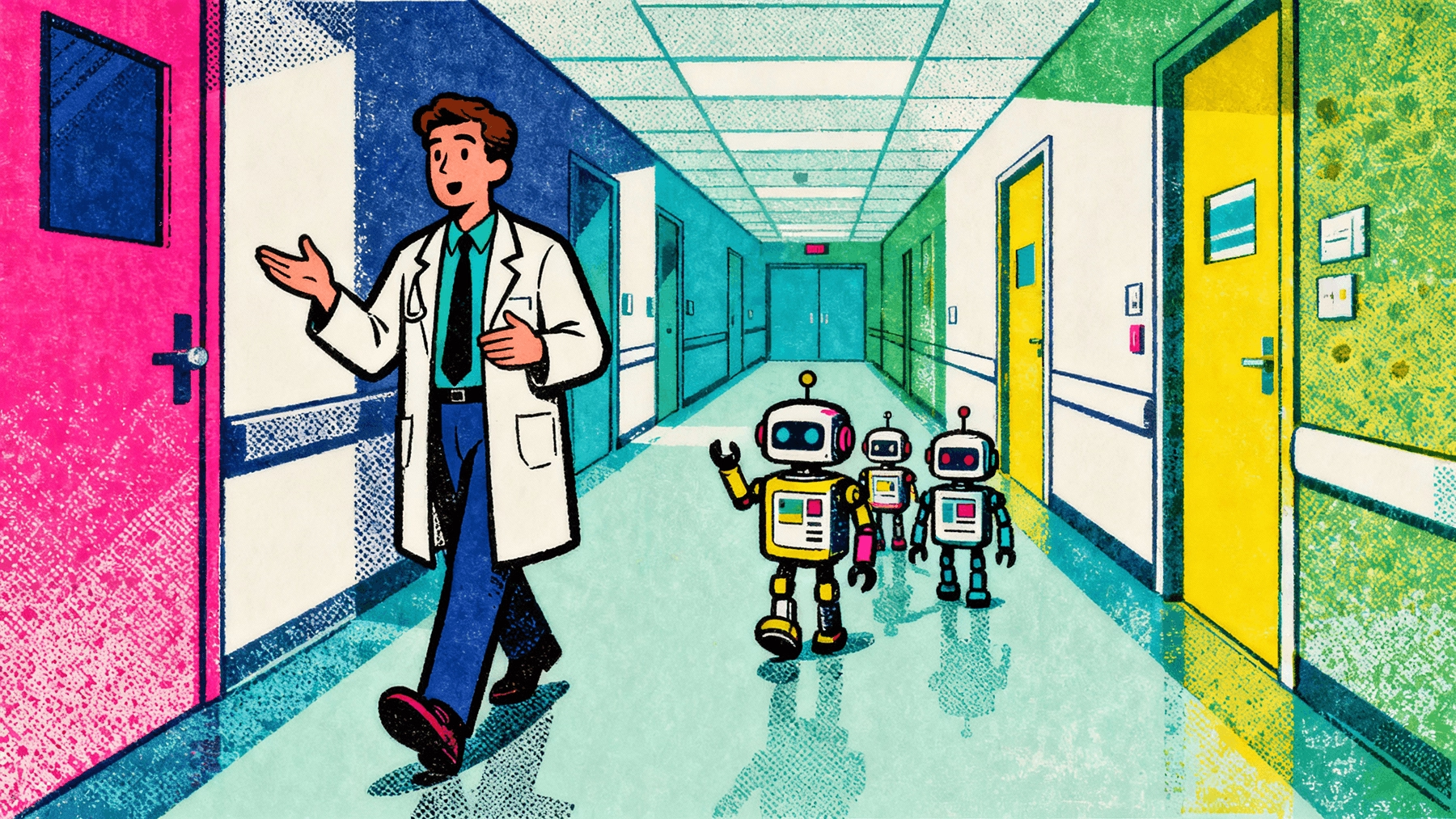Do AI medical scribes work?
Physicians who spend hours documenting can now use AI medical scribes to reduce "pajama time" in the EHR while improving patient interactions.


Popular articles
Clinical documentation is one of physicians' biggest sources of professional dissatisfaction. Doctors spend hours daily in the EHR, and typing notes during visits makes it harder to connect empathetically with patients. Could AI medical scribes help alleviate the burden?
By now, you’ve probably heard about AI scribes—sometimes called “ambient clinical intelligence.” These tools use generative artificial intelligence to provide real-time, scribe-like capabilities.
Most AI scribes work by listening to patient-provider conversations using your smartphone’s microphone. The software then transcribes the encounter and generates a structured clinical note, usually in under a minute. Popular examples include Conveyor AI, DAX Copilot, and Augmedix.
Summary
Early evidence suggests AI medical scribes can reduce documentation burden and improve visit flow by transcribing encounters and rapidly generating structured notes. A large Kaiser Permanente pilot (3,000+ physicians; 300,000+ encounters) linked frequent use to less after-hours EHR time, high physician satisfaction, and generally accurate notes, while most patients were comfortable, though clinicians must review outputs due to occasional errors. Benefits seem strongest in primary care, but adoption challenges include English-only support, learning curves, workflow impacts, and the need for ongoing oversight. Overall, AI scribes are promising but not flawless, requiring careful implementation to realize their potential.
Initial Data Shows AI Scribes Are Effective
Kaiser Permanente recently completed a pilot study to evaluate the effectiveness of AI medical scribes across a large, multidisciplinary physician group in Northern California. Over 3,000 physicians used the ambient AI scribe for over 300,000 patient encounters. Researchers collected feedback from doctors and compared EHR usage between users and non-users.
The results offer insight into AI scribes' potential benefits and limitations in clinical practice. Here are a few highlights.
AI Scribes Reduce ‘EHR Pajama Time’
Primary care physicians, who are especially burdened by after-hours charting, may be the biggest beneficiaries of AI-enabled documentation.
Kaiser found a statistically significant association between AI scribe use and reduced EHR time outside standard work hours (7 pm to 7 am). The more frequently a physician used the AI tool, the greater the reduction in their after-hours documentation. This dose-response relationship suggests that AI scribes may be a meaningful solution to the problem of “EHR pajama time.”
Scribe Software Helps Doctors Focus on Patients
Physician feedback from the Kaiser pilot was overwhelmingly positive. Doctors described better visits and greater satisfaction with their documentation workflow:
“It makes the visit so much more enjoyable because now you can talk more with the patient and concentrate on their concerns.”
“I use it for every visit I can and it is making my notes more concise and my visits better. I know I’m gushing, but this has been the biggest game changer for me.”
While any new tool requires some workflow adjustment, many physicians reported that AI scribes saved time and helped improve patient interactions.
Patients Are Largely Comfortable with AI Use
Despite national polls suggesting that Americans are wary of AI in healthcare, clinical experience paints a different picture.
In Kaiser’s pilot, most patients were comfortable with their physician using an AI scribe. A small follow-up survey found that most patients felt their doctor spent more time talking to them and less time on the computer than during previous visits.
AI Scribes Are Accurate But Not Flawless
Researchers assessed the accuracy of AI-generated notes by evaluating full transcripts and encounter summaries. They found “high levels of performance” on criteria like organization, internal consistency, and freedom from bias.
That said, AI scribes aren’t perfect. In a few instances, the AI added incorrect details—known as “hallucinations.” Physicians should carefully review all AI-generated notes before signing, just as they would with any delegated documentation.
Implementation Hurdles Remain
Kaiser’s initial results are promising, but the study also pointed out some barriers to broader adoption:
- AI scribes currently only support conversations conducted entirely in English.
- Some physicians opted out due to the initial learning curve or perceived workflow disruption.
- As AI tools and healthcare regulations evolve, continued evaluation and oversight will be needed to ensure safety and effectiveness.
For AI scribes to fulfill their promise, healthcare organizations and vendors must address these challenges head-on.
Related Articles


We Get Doctors Home on Time.
Contact us
We proudly offer enterprise-ready solutions for large clinical practices and hospitals.
Whether you’re looking for a universal dictation platform or want to improve the documentation efficiency of your workforce, we’re here to help.





